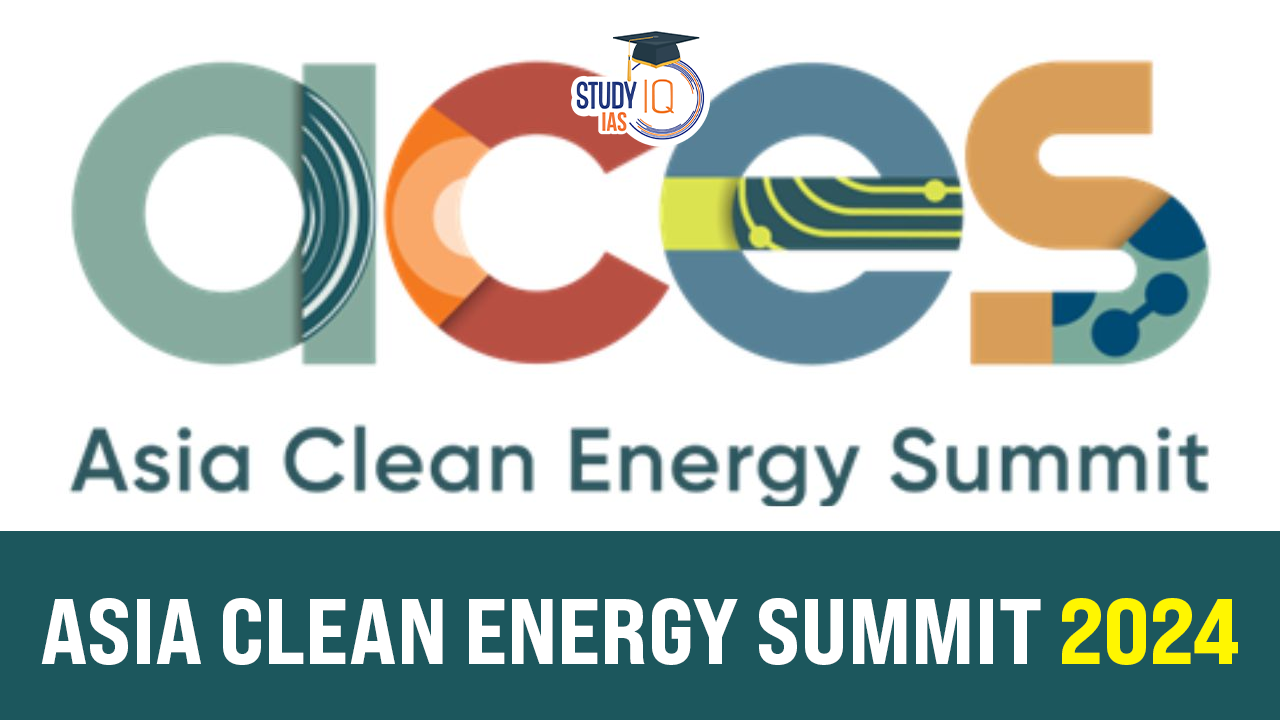Table of Contents
The Asia Clean Energy Summit (ACES) 2024, a significant part of Singapore’s annual Singapore International Energy Week (SIEW), was held from October 22-24, 2024. Marking its 11th edition, ACES 2024 assembled global experts, innovators, and policymakers, all driven by a shared mission to accelerate Asia’s transition to clean energy. In collaboration with organizations like the Energy Research Institute @ NTU (ERI@N) and the Solar Energy Research Institute of Singapore (SERIS), ACES serves as a critical platform to shape policies and introduce advanced technologies to help Asia meet its climate targets and sustainable development goals.
Asia Clean Energy Summit 2024
Organized as part of Singapore International Energy Week, ACES 2024 featured panels, discussions, and exhibitions by clean energy thought leaders and innovators. Supported by key organizations, including the Asian Development Bank, Singapore Economic Development Board (EDB), Energy Market Authority (EMA), and Enterprise Singapore, this event underscored the importance of public-private partnerships and regional collaboration in achieving Asia’s sustainability goals.
Asia Clean Energy Summit 2024 Themes
The Asia Clean Energy Summit (ACES) 2024 focused on several key themes essential to advancing sustainable energy solutions across Asia. These themes addressed policy, technology, finance, and collaboration needs for accelerating the clean energy transition in the region. Here are the primary themes highlighted at ACES 2024:
Net-Zero Targets
- This theme concentrated on reshaping and reinforcing national and corporate commitments to achieve net-zero emissions. Leaders and policymakers discussed strategies to mitigate climate change effectively, emphasizing the urgency of setting more ambitious net-zero timelines across Asia.
Corporate and National Commitments
- With growing environmental responsibility, this theme analyzed the role of corporations and nations in setting clear and achievable pathways to carbon neutrality. Discussions focused on integrating sustainable practices within corporate operations and aligning national policies to drive widespread change.
Policy and Technological Innovation
- Key sessions explored new policies and cutting-edge clean energy technologies, essential for achieving net-zero goals. Emphasis was placed on the need for supportive regulatory frameworks and the role of innovation in overcoming existing challenges in renewable energy deployment.
Financing Sustainable Development
- Financing mechanisms were discussed to bridge the gap between clean energy initiatives and necessary investment. The summit explored ways to mobilize funding for clean energy projects, including public-private partnerships, green financing, and innovative funding models to support the region’s sustainability goals.
Carbon Markets and Carbon Credits
- Coinciding with the inaugural Asia Carbon Summit, this theme delved into the development and expansion of carbon markets in Asia. Carbon credits were highlighted as a critical tool for promoting sustainable practices, enabling countries and companies to offset emissions and support the shift towards greener economies.
Asia Clean Energy Summit Objectives
The Asia Clean Energy Summit (ACES) 2024 outlined several key objectives aimed at transforming Asia’s energy landscape through sustainable practices and collaborative efforts. Here are the primary objectives of ACES 2024:
- Accelerate Clean Energy Adoption: Promote large-scale renewable energy deployment across Asia.
- Drive Net-Zero Progress: Facilitate partnerships to align nations and corporations with net-zero emission goals.
- Enhance Policy and Innovation: Support policy development and adoption of advanced clean energy tech.
- Facilitate Sustainable Financing: Attract investments through green bonds, public-private partnerships, and other models.
- Strengthen Carbon Markets: Expand carbon trading and credits for sustainable carbon offsetting.
- Foster Cross-Sector Collaboration: Unite policymakers, industry, and financiers for joint solutions.
- Improve Regional Energy Security: Reduce reliance on fossil fuels to enhance energy resilience.
- Showcase Innovations and Best Practices: Highlight new technologies and scalable clean energy practices.
Peak Energy’s Role in Asia’s Renewable Landscape
Peak Energy, a renewable energy company supported by Stonepeak, actively participated in ACES 2024. CEO Gavin Adda delivered a keynote titled “Strategic Entry and Expansion: Unlocking Asia’s Solar and Storage Potential”, where he addressed the rising demand for renewable energy in Asia. Highlights from his keynote included:
- Asia’s Growing Market: Asia is projected to contribute over 50% of global solar and storage growth in the coming decade.
- Investment and Collaboration: Adda emphasized the need for collaboration between the industry and government leaders, supported by Stonepeak’s $70 billion assets, to drive renewable energy expansion in the region.
- Strategic Insights: Adda provided insights for leveraging Asia’s renewable energy growth, particularly in solar and storage sectors, to support sustainability goals.
Relevance of ACES 2024 for India
ACES 2024 holds particular importance for India as the country has set ambitious renewable energy targets and is committed to sustainable growth:
- Policy Development: India can adopt best practices from ACES to strengthen its policies under the National Green Hydrogen Mission.
- Technological Collaboration: Participation in ACES allows India to explore technological advancements for clean energy projects.
- Investment Opportunities: ACES offers a platform for Indian stakeholders to attract investments in renewable energy initiatives.
- Commitment to Climate Goals: India’s participation aligns with its Net-Zero by 2070 target and other national sustainability commitments.
Challenges in Asia’s Clean Energy Transition
While ACES 2024 explored solutions, there remain notable challenges in Asia’s shift to clean energy:
- High Initial Costs: Infrastructure for renewable energy projects requires significant investments.
- Grid Modernization: Outdated grid systems in many regions need modernization to integrate renewable energy efficiently.
- Dependence on Fossil Fuels: Asia’s rapid economic growth relies on fossil fuels, posing a challenge to clean energy transitions.
- Policy and Regulatory Hurdles: Varying policies and regulatory inconsistencies can hinder regional clean energy progress.
Global Impact of Asia’s Energy Transformation
Asia’s successful energy transformation is essential for global climate action:
- Reduction in Global Emissions: Asia’s shift to renewables could reduce a substantial portion of global emissions.
- Energy Security: Moving to clean energy sources reduces reliance on imported fuels, enhancing energy security.
- New Markets for Clean Technology: As Asian countries adopt renewables, they create vast markets for green technology and stimulate economic growth through job creation.
Outcomes of ACES 2024
Key takeaways from ACES 2024 include:
- Memorandums of Understanding (MoUs) signed for joint projects and collaboration between Asian nations.
- Policy Recommendations for governments to promote renewable energy and sustainable finance.
- New Investment Initiatives: Announcements regarding investments in renewable energy, with potential impacts on both regional and global markets.
Asia Clean Energy Summit UPSC
ACES 2024 reinforced Asia’s dedication to sustainable development and clean energy solutions. As a significant step toward a green future, the summit’s discussions, partnerships, and innovations underscore Asia’s critical role in the global energy landscape. For UPSC aspirants, the summit highlights themes of sustainable development, international relations, and climate policy, which are relevant for the UPSC Mains and Prelims.


 Squadron Leader Shivangi Singh: India’...
Squadron Leader Shivangi Singh: India’...
 Mullaperiyar Dam, History, Issue and Dis...
Mullaperiyar Dam, History, Issue and Dis...
 List Of Top 10 Air Defence Systems In Th...
List Of Top 10 Air Defence Systems In Th...





















